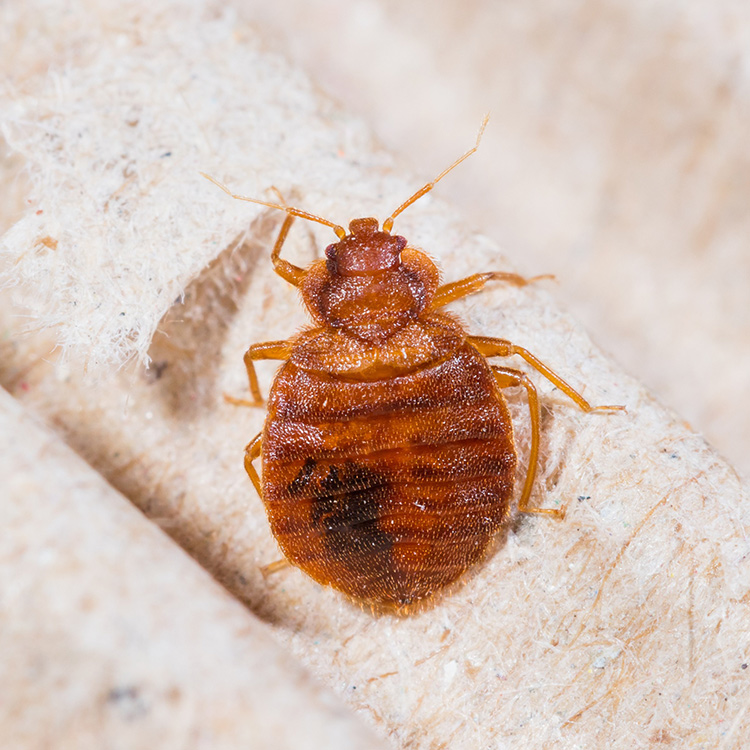What Are Bed Bugs?
 Bed bugs (Cimex lectularius) are small, reddish-brown insects that feed on the blood of humans and other warm-blooded animals. They are parasitic pests that primarily infest areas where people sleep or rest, such as beds, mattresses, couches, and upholstered furniture. Bed bugs are nocturnal creatures, and they are known for their ability to hide in cracks, crevices, and other tight spaces during the day, making them difficult to detect.
Bed bugs (Cimex lectularius) are small, reddish-brown insects that feed on the blood of humans and other warm-blooded animals. They are parasitic pests that primarily infest areas where people sleep or rest, such as beds, mattresses, couches, and upholstered furniture. Bed bugs are nocturnal creatures, and they are known for their ability to hide in cracks, crevices, and other tight spaces during the day, making them difficult to detect.
While bed bug bites are not generally considered dangerous, they can cause itchy, red welts on the skin that may lead to discomfort and irritation. An allergic reaction to bed bug bites is also possible in some individuals.
Bed bug infestations can spread rapidly if left untreated, and their resilience to many common pesticides and their ability to hide in various places make them challenging to eradicate. Professional pest control methods are often required to effectively eliminate a bed bug infestation.
How We Can Help...
 Canine Inspections uses canines for bed bug inspections due to their remarkable sense of smell and efficiency in detecting these elusive pests.
Canine Inspections uses canines for bed bug inspections due to their remarkable sense of smell and efficiency in detecting these elusive pests.
Canine Inspection: The handler and the dog enter the space to be inspected. The dog then systematically sniffs various surfaces and areas, such as mattresses, furniture, baseboards, and cracks. The dog's keen sense of smell allows it to identify the unique scent of bed bugs and their eggs.
Alert Behavior: When the dog detects the scent of bed bugs, it exhibits a trained alert behavior, which could include sitting, pawing, or staring at the location of the scent source. The handler closely observes the dog's behavior to confirm the detection.
Visual Verification: After the dog alerts to a certain area, the handler conducts a visual inspection to confirm the presence of bed bugs.
Documentation: The handler documents the areas where the dog alerted and the visual confirmation of bed bug presence. This information helps guide treatment efforts and subsequent follow-ups. You will receive a written report.
Treatment Planning: Based on the canine inspection findings, a treatment plan can be developed. The early detection provided by the dog can help target treatments to specific areas.
Follow-Up Inspections: In cases where treatment is conducted, we can provide a follow-up canine inspection to confirm the effectiveness of the treatment. This ensures that the infestation has been successfully eradicated.
It's important to emphasize that the success of canine bed bug inspections relies on the proper training of both the dog and the handler. Regular training sessions and ongoing maintenance of their skills are essential to maintain accuracy. We conduct daily training sessions and are certified through the Wisconsin Pest Control Association and the National Entomology Scent Detection Canine Association.
If you think you have bed bugs or you would like us to inspect and certfiy you don't, contact us online or by phone at (608) 882-1508.




